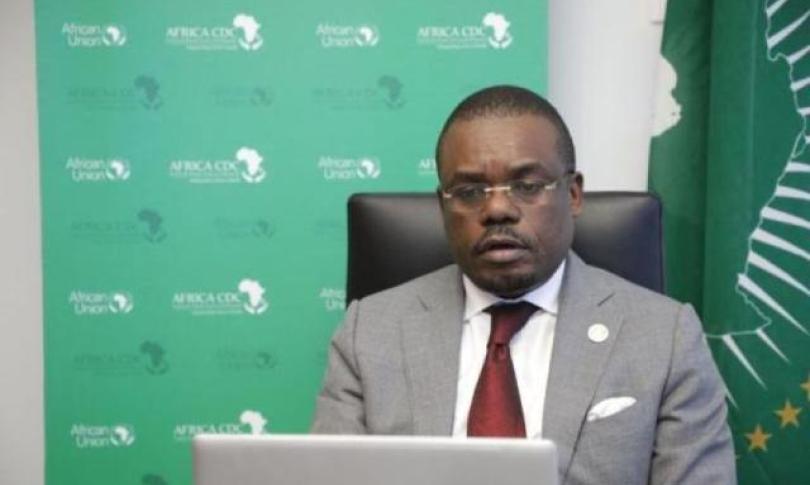
The attention of the world is gradually shifting from one health crisis onto another, this quiet epidemic is stretching its tentacles across Africa, leaving devastating impacts in its wake. Once considered a rare disease, mpox is an emerging significant health threat across many African countries. With more than 29,000 cases reported and 738 deaths as of September 2024, this silent surge of Mpox across the continent has exposed the vulnerability of healthcare systems and the resilience of communities battling this epidemic.
MPOX, known as monkeypox, has been rapidly rising in Central, Eastern, Western, and Southern Africa.
By the 36th epidemiological week of 2024, Africa recorded 6,105 confirmed cases with a 177% increase in cases as compared to the same period in 2023.
Behind these numbers are stories of individual people and families who face fear, stigma, and loss amidst efforts by health workers and organizations to get the crisis contained.
In a small village in the DRC, Aminata, 34, recollected how Mpox took her husband-one among many victims of the epidemic in Central Africa: "He developed a fever and a rash, but we thought it was a regular infection," she said. "By the time we got to the hospital, it was too late. The doctors told us he had Mpox. Aminata's situation represents the broader context of the outbreak.
To date, Central Africa has reported over 26,000 cases and 734 deaths, accounting for the great bulk of Mpox-related deaths on the continent according to Africa CDC. In countries like the DRC, where the health infrastructure is stretched beyond its limits, Mpox has joined the list of concerns, increasing the difficulties faced.
Mpox cases have increased sharply since May 2024, with many countries reporting new cases each week. The disease, which primarily spreads through close physical contact, is affecting vulnerable populations the most, including children under 15, who make up 41% of the confirmed cases by Africa CDC. Experts say,the rise in cross-border movement, combined with factors such as malnutrition and limited healthcare access, has made containment even more difficult.
Across the border, in Uganda-which is also fighting the outbreak-health workers race against time always. "The challenge is in early identification and isolation to cut transmission," says Dr. Joseph Mwesige, a frontline worker in Kampala. "People in rural areas often don't report symptoms until it's too late and the virus has spread to family members. However, amidst this uphill struggle, there are streaks of optimism.
One of the countries affected, Rwanda, has since then initiated a vaccination campaign and is the first African nation to roll out vaccines for Mpox. The vaccination drive, facilitated by the Africa Centres for Disease Control and Prevention, commonly known as Africa CDC, represents a key milestone in the efforts to curb the spread of the disease. "We have seen a great response to the vaccine," reports Dr. Maria Twum, a health official based in Kigali.
“People are coming forward to get vaccinated, and we’re hopeful this will reduce the number of new cases.”
The Africa CDC has, since the outbreak of Mpox, taken the lead in coordinating the response of the continent. Working closely with governments, international organizations, and experts in health, the Africa CDC deployed over 300 epidemiologists across the regions to support surveillance, testing, and contact tracing.
Dr. Jean Kaseya, Director General of the Africa CDC, underscores that this calls for a unified response. "We are seeing the impact of our coordinated efforts in managing Mpox, but the road ahead is long," he says. "Countries need resources to strengthen their healthcare systems, and public awareness must be raised to combat stigma and misinformation.
Africa CDC has also facilitated the procurement of 28,000 Mpox test kits; some countries, such as Burundi and Sierra Leone, have acquired genomic sequencing equipment for enhanced diagnostic capabilities. "Testing remains a challenge, but we are making progress," says Dr. Kaseya. "Our goal is to ensure that all member states have what they need to fight this outbreak."
Despite such efforts, there are still some setbacks. The rate of testing across the continent remains low, with only 52% of suspected cases being tested, says the presentation of the African CDC boss in a Press Briefing. Diagnosing and treating Mpox is considerably delayed in areas with poor health access, like rural Central and Eastern Africa. These usually lead to further transmission and high mortality.
Lack of public awareness is also one of the major contributors to the spread of the disease. Because very few people know the symptoms of Mpox, it has gone underreported in many communities and therefore undertreated. Due to the stigma associated with the disease, some people have avoided treatment, further complicating efforts to contain the outbreak.
Dr. Mwesige argues that community involvement is the cornerstone of handling such challenges. "We need to engage local leaders and health workers in educating people about the disease," he says. "The more they are informed, the better prepared they are to protect themselves and their families."
The Mpox outbreak in Africa has brought into focus, once again, the vulnerability of the African continent to infectious diseases. Socio-economic factors and cross-border movements have contributed to the spread of the virus, hence requiring imperative international support. Africa CDC, the African Union continues to appeal to global health partners for assistance through financial and technical aid, enabling African nations to respond effectively.
We cannot do this alone," Dr. Kaseya says. "Africa has always shown incredible resilience in the wake of health challenges, but we need global solidarity.
The fight against Mpox is not just an African fight; it is a global health issue. As this Mpox outbreak continues to unfold, it is the resilience of the African communities, health workers, and entities such as the Africa CDC that will constitute the fulcrum on which the course of events turns.
